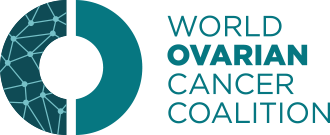An interview with MOG Portugal.
24 October 2025
Tell us about how MOG Portugal was started.
 MOG was founded in December 2019 by two women with ovarian cancer, both named Cláudia. At that time, there was no association in Portugal dedicated to gynaecological cancers – and MOG remains the only one today.
MOG was founded in December 2019 by two women with ovarian cancer, both named Cláudia. At that time, there was no association in Portugal dedicated to gynaecological cancers – and MOG remains the only one today.
The two Cláudias felt the need to create an organization that could respond to the many questions and concerns of women facing the disease, who found no support in other associations. At the same time, it was necessary to give these cancers a voice before health authorities and to find ways of working together to ensure that all women receive proper diagnosis, treatment, and follow-up – ultimately contributing to improving their quality of life.
The association quickly joined international platforms such as the World Ovarian Cancer Coalition, ESGO-ENGAGe, and IGCS-IGCAN, as well as Portuguese platforms, fostering empowerment, partnerships, and the sharing of expertise.
Born on the eve of the COVID-19 pandemic and the ensuing lockdowns, MOG grew gradually and today – nearly six years later – has almost 600 members, including not only patients but also family members, friends, and supporters of our causes.
What are your main priorities and programs supporting those affected by ovarian cancer?
Our priority is to promote equity among women affected by the disease, ensuring that all have access to the best possible healthcare. For this reason, we regularly bring our demands and proposals to the relevant authorities (Ministry of Health, national medicines agency, Parliament, and political parties).
One example is the petition we organized in 2023 (No Portuguese Woman with Ovarian Cancer Left Behind) calling for equal access to innovative medication (PARP inhibitors). We were able to celebrate that victory the following year.
We also respond to the multiple needs of our members: seeking second opinions, navigating the healthcare system, organizing workshops with doctors and other specialists to clarify doubts, and increasing knowledge and awareness.
Believing that peer support is essential, we organize both in-person and online activities to bring these women together. Every week, we hold an online discussion circle where members can speak openly, sharing both struggles and victories. This is complemented by several WhatsApp groups. We also promote physical exercise as a key element in the cancer journey. We offer classes at our headquarters and participate in several working groups on exercise and cancer.
In parallel, we run awareness campaigns for diverse audiences: from high schools to senior universities, as well as in companies, public institutions, among healthcare professionals, and at health fairs. Our aim is to spread the message of how important gynaecological check-ups are and to encourage women to “listen to their bodies,” understanding that any unusual or persistent symptom must be taken seriously. Our mantra is: “Go to the doctor and take a friend”, as part of our effort to make these topics more visible and widely discussed.
What are the most significant challenges facing your community when it comes to ovarian cancer?
Delayed diagnosis and late-stage detection are among the biggest challenges. This still happens for multiple reasons: women who dismiss symptoms or skip gynaecological check-ups, but also primary care physicians who underestimate symptoms and take too long to refer patients for diagnostic tests. To address this, we have asked the Ministry of Health to create dedicated women’s health consultations within primary care services.
Another major concern is the creation of comprehensive centres for gynaecological cancers, an essential step to reduce regional disparities in medical care, particularly affecting the south and interior of the country.
We also work to improve health literacy. A study in which MOG participated revealed that 44% of Portuguese women do not see a gynaecologist regularly (due to lack of interest, embarrassment, feeling it’s unnecessary, or financial reasons). We are taking action to help change this reality.
Tell us about the photo exhibition that was launched last week in Lisbon. How did it come about and what has the reaction been?
MOG invited its members – women with gynaecological cancers – to show their scars. Our goal was to challenge prejudice and strengthen the self-esteem and self-confidence of those facing these diseases.
 Eight women with ovarian cancer joined the project. The photo sessions, held on the beach with two photographers – one woman and one man – were very special moments that expressed companionship, well-being, and unity among the women.
Eight women with ovarian cancer joined the project. The photo sessions, held on the beach with two photographers – one woman and one man – were very special moments that expressed companionship, well-being, and unity among the women.
The exhibition, hosted at the Oriente Foundation Museum in Lisbon, provoked deeply emotional reactions and received significant media coverage. Visitors described the images as “powerful,” and the exhibition as one of “courage,” “strength,” “resilience,” and “hope” – even “joy.”
We believe one psychologist’s comment perfectly sums up the audience’s sentiment: “Congratulations and thank you to MOG for this exercise in confronting reality, but also for bringing hope – which is, after all, what life is truly about.”
You can learn more about MOG Portugal on their website: https://mogportugal.pt/
